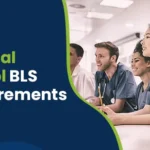Cardiac disease in the young is often thought of as something impossible and very rare. It is always perceived as a problem that can only impact elderly people. Cardiac or cardiovascular problems can pose significant threats to babies, toddlers and even young adults.
Cardiac diseases are not just a clinical concern. It is a rather growing public health issue that needs our attention. According to the Children’s Heart Foundation, congenital heart defects affect every 1 in 100 babies in the United States. Such defects at times can be managed without treatments, but few cases are complicated that cause severe problems in the body. Other forms of cardiac diseases affecting the young are cardiomyopathy, arrhythmia and Kawasaki disease.
Understanding the signs of symptoms can help parents and caregivers get the child the right treatment. Also the role of genetics cannot be overlooked when it comes to early onset of cardiac problems in an individual. With the help of this blog, we will acknowledge and address the impact of cardiac problems on younger populations.
Master ACLS Now
Get ACLS certified with confidence
Can young people have heart attacks?
While heart attacks are typically associated with older adults, young people can also experience them. Heart attacks in young individuals are a serious medical concern and can have devastating consequences. Understanding the causes, risk factors, and measures is essential.
These are the Causes and Risk Factors:
- Genetic Predisposition: A family history of heart disease can significantly increase the risk of heart attacks in young people.
- Congenital Heart Defects: Some young individuals may have undiagnosed congenital heart conditions that predispose them to heart attacks.
- Lifestyle Factors: Poor diet, lack of physical activity, smoking, and excessive alcohol consumption are major contributors to heart disease, even in the young.
- Substance Abuse: The use of recreational drugs, such as cocaine and amphetamines, can lead to coronary artery spasms and increase the risk of heart attacks.
- Obesity and Diabetes: Rising rates of obesity and type 2 diabetes in young people are linked to an increased risk of heart disease and heart attacks.
- Stress and Mental Health: Chronic stress, anxiety, and depression can negatively impact heart health and contribute to the risk of a heart attack.
Symptoms to Watch For:
- Chest Pain or Discomfort: This is the most common symptom, but young people may experience it differently, such as a sharp or burning sensation.
- Shortness of Breath: Difficulty breathing can occur even without physical exertion.
- Unexplained Fatigue: Persistent fatigue that doesn’t improve with rest can be a warning sign.
- Dizziness or Fainting: These symptoms, particularly during physical activity, can indicate heart issues.
- Pain in Other Areas: Pain radiating to the arms, back, neck, jaw, or stomach can also be indicative of a heart attack.
Preventive Measures:
- Healthy Lifestyle Choices: Encourage a balanced diet, regular exercise, and avoiding smoking and excessive alcohol use.
- Regular Medical Check-Ups: Routine visits to a healthcare provider can help monitor heart health and identify potential issues early.
- Awareness and Education: Educating young people about the risks and symptoms of heart disease can lead to earlier detection and treatment.
- Manage Chronic Conditions: Proper management of conditions like hypertension, diabetes, and high cholesterol is crucial.
- Stress Management: Techniques such as mindfulness, therapy, and adequate rest can help manage stress levels.
Read More: What are the commonly used medications in PALS?
What are the heart failure symptoms in young adults?
Heart failure, a condition where the heart is unable to pump blood effectively, can affect individuals of any age, including young adults.
Common Symptoms of Heart Failure in Young Adults
- Shortness of Breath: Difficulty breathing, especially during physical activity or when lying down, can be an early sign of heart failure.
- Persistent Fatigue: Unusual tiredness that doesn’t improve with rest and impacts daily activities.
- Swelling (Edema): Swelling in the legs, ankles, feet, or abdomen due to fluid retention.
- Rapid or Irregular Heartbeat: Palpitations or an abnormally fast or irregular pulse.
- Chronic Cough or Wheezing: A cough that produces white or pink blood-tinged mucus can be a symptom of fluid buildup in the lungs.
- Increased Need to Urinate at Night: Frequent nighttime urination (nocturia) due to fluid redistribution.
- Sudden Weight Gain: Rapid weight gain from fluid retention, sometimes over just a few days.
- Lack of Appetite and Nausea: Feeling full after eating small amounts, or experiencing nausea.
- Confusion or Impaired Thinking: Reduced blood flow can affect mental clarity and cognitive function.
- Chest Pain: Although less common, chest pain can occur, particularly if heart failure is due to a heart attack.
Conclusion
Cardiac diseases are often considered as a primary health concern for older people. But it is important to raise awareness of the impact of cardiac disease in the young. Understanding the early signs and symptoms helps in timely diagnosis and treatment. Both the youth and caregivers should be educated on this topic ensuring positive health outcomes for the younger generation. So begin by investing in research, screening programs and stay updated with important information and guidelines.







